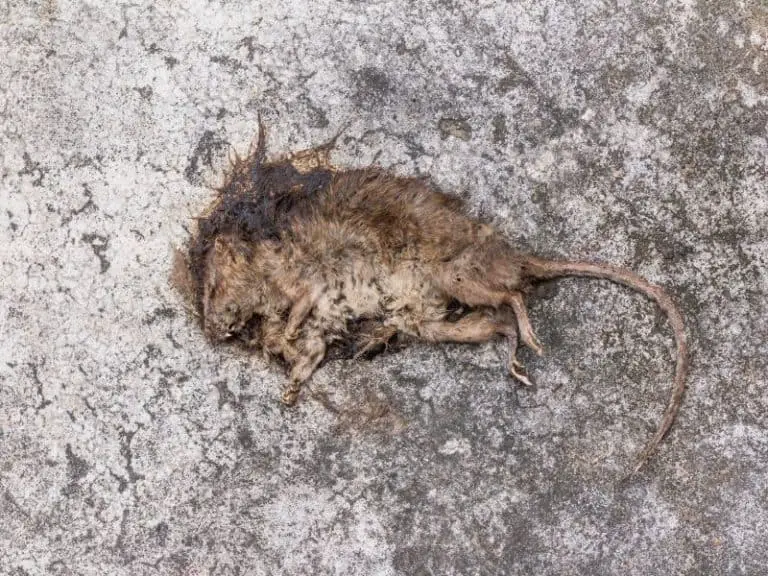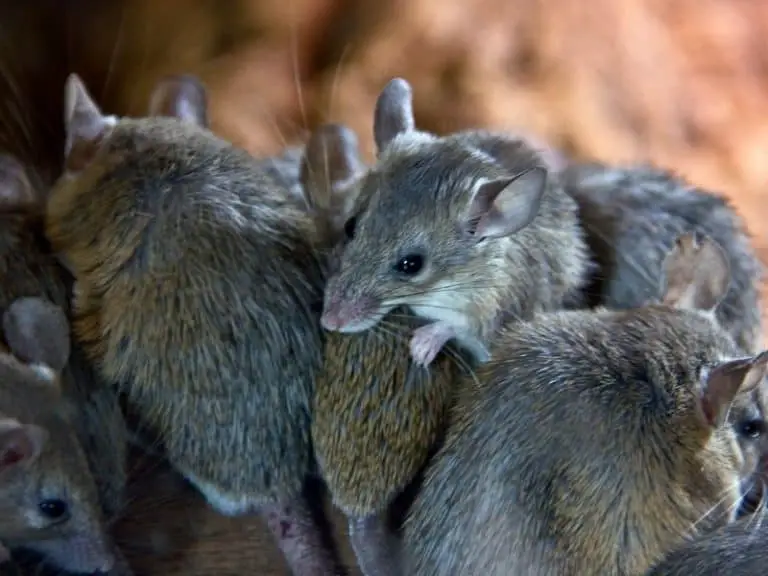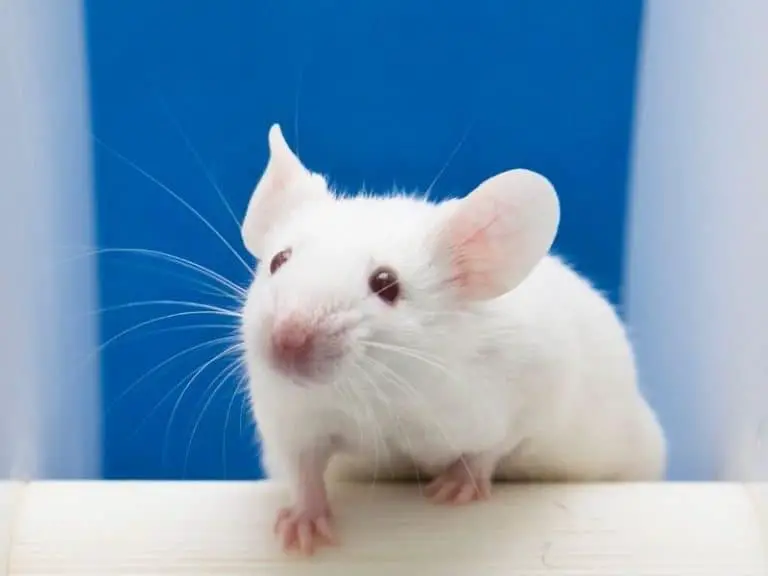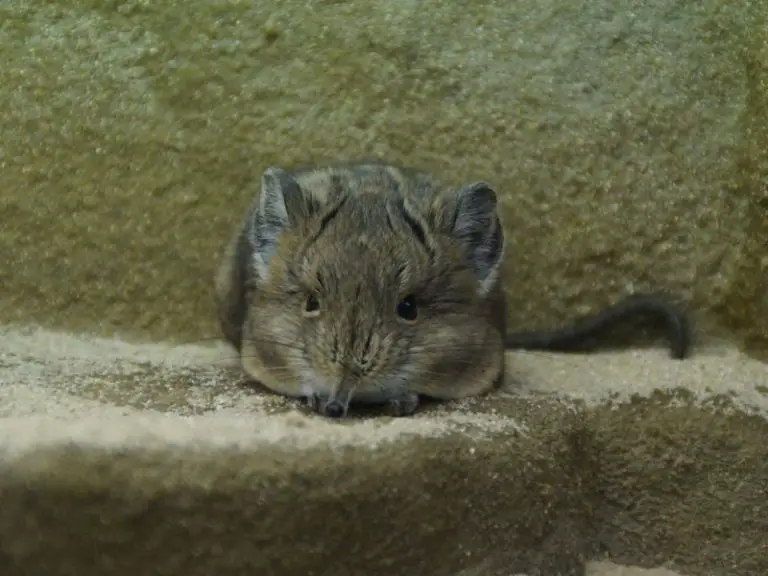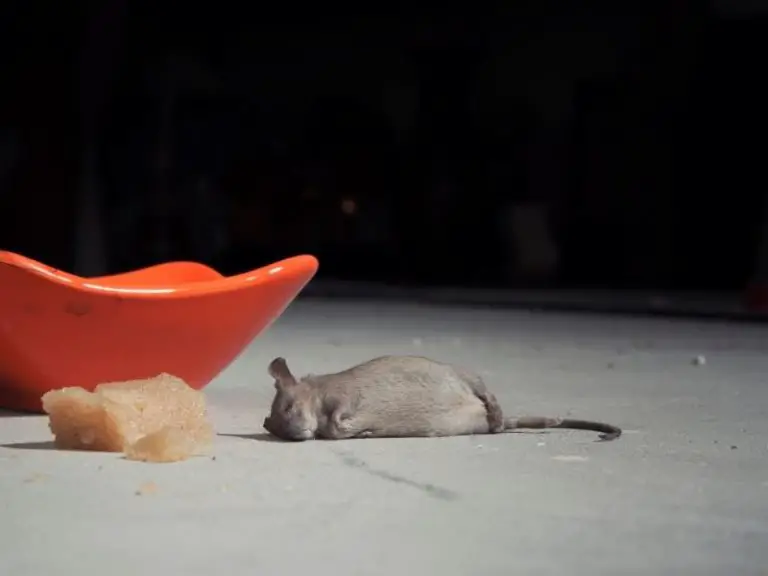What to Do When Your Cat Catches a Mouse (Dead and Live)
Cats and mice have been at war probably since their ancestors first laid eyes on one another. Whether you are a certified ailurophile or on your way to being one, it is very much likely for you to one day encounter a dead or live mouse in the mouth of your meowing mate.
When a cat catches a mouse, it’s a must to stop it from eating its prey to avoid an infection. Set the mouse free to keep the cat’s paw off it. If the mouse is severely injured, it’s best to kill it immediately to end its suffering. Proper disposing of and sanitizing are vital if the mouse is dead.
Rodents, including mice that your cat could sink its fangs into, are known to carry an assortment of bacteria, viruses and other microorganisms.
Many of them could put the health of your cat and yours, too, in danger. This is why you should make sure that your big-eyed buddy won’t be able to catch mice and eat or play with them.
Why Cats Love to Hunt
Before we talk about what to do when your cat catches a mouse (dead and live), let us first talk about a few important matters first, such as why your pet seems like a vicious angel and the risks that can come with it.
Your cat loves to hunt mice, and it can be due to a number of reasons:
- It wants you to learn to hunt. One supposition why your feline friend likes to offer you the carcasses of its beady-eyed enemies is that it just wants to show how hunting is supposed to be done. Your cat probably doesn’t want you to become an apex predator — most likely, it just wants to make sure that you will survive.
- It thinks that you are hungry. In the wild, cats hunt down animals for their kids and the rest of the family to feast on. Being its affectionate owner, your cat thinks of you as family. This is probably why it has the habit of leaving mangled small animals, such as mice, near you. Bon appétit!
- It likes to make you feel appreciated. Cats may be widely seen as lazy creatures as they tend to sleep all the time. However, they can be charitable beings, too. Sometimes, your cat may be feeling thoughtful. But since it cannot hit the mall to get you something nice, it just goes for what it could get you easily: a dead rodent.
- It is just following its instincts. Your cat’s ancestors may have been domesticated 4,000 years ago alright. However, their domestication did not get rid of their being natural hunters. In most instances, your purring pal likes to hunt mice for no particular reason or motive — it’s just a habit that it finds difficult to break.
No matter the reason why your cat couldn’t resist catching and playing with mice, it can break your heart to learn that behind those big naive eyes is a predator that likes to hunt down and torture innocent creatures — and sometimes not-so-innocent creatures such as scorpions and snakes (which can put your pet in danger, by the way).
Later, we will talk about some of the things that you could do in order to minimize the risk of your whiskered wonder catching a mouse and making it suffer and/or taking its life.
Health Risks Involved
Do you hate seeing a dead mouse courtesy of your cuddly but deadly cat as much as you hate thinking how that tiny squeaking living creature could have suffered at the hands — well, paws — of your pet?
If truth be told, it’s not just the welfare of its hapless victim that you should worry about but also your cat’s.
Just like other pests, mice could spread all kinds of diseases. It’s no secret that some of the greatest pandemics throughout the history of man involved rats.
Your cat may be hunting down mice only alright, but mice are related to rats. And, in many instances, they tend to operate similarly, such as when it comes to spreading diseases.
Rodents could be carrying bacteria, viruses, and a bunch of other microorganisms that could affect your cat and, in some instances, you.
Let’s take a look at some of the reasons your cat’s habit of following its instincts could be harmful to all parties concerned…
Toxoplasmosis
One of the most common parasitic diseases in cats, toxoplasmosis is caused by a single-celled parasite called toxoplasma gondii.
While the microorganism can infect many different animals (including humans), it finds cats as the most ideal hosts. That’s because it is only in cats where the toxoplasma parasite can have a complete life cycle.
Most cats with toxoplasmosis do not have any symptoms. However, in some instances, they may experience loss of appetite, weight loss, lethargy, and fever. It may cause pneumonia, too.
Humans can get toxoplasmosis from cats. When infected, some may not encounter any symptoms. Others, however, may have lethargy, fever, headaches and muscle pain.
Toxoplasmosis can be extremely dangerous for pregnant women and people with weakened or compromised immune systems.
How do people get toxoplasmosis from cats?
People get toxoplasmosis from cats by coming into contact with cat feces containing the toxoplasma parasite. It can happen while cleaning a cat’s litter box with infected feces. It can also happen when touching or ingesting just about anything that has come into contact with contaminated cat feces.
According to the Centers for Disease Control and Prevention (CDC), severe toxoplasmosis can cause damage to the eyes, brain and other organs in infected people.
Hantavirus
Many types of rodents, including certain types of mouse that your cat could hunt down and play with, are known as carriers of the hantavirus, which comes in more than 20 different species.
Cats can get hantavirus disease from coming into contact with mice infected with the hantavirus. Despite this, cats that are infected with the disease will experience no symptoms at all.
So, in other words, the virus isn’t harmful to them. However, it’s a completely different story when humans are the ones that become infected.
Fever, chills, fatigue, dizziness, muscle aches, headaches, abdominal pain, nausea, vomiting — these are some of the symptoms of hantavirus disease in humans.
In severe cases, what’s referred to as hantavirus pulmonary syndrome (HPS) may show up. HPS is a severe respiratory disease that can sometimes be fatal.
How do people get hantavirus disease from rodents?
People can get hantavirus disease from rodents when they inhale the hantavirus in the air. The hantavirus can be found in the saliva, urine and droppings of infected rodents. People may also get hantavirus disease by touching their mouths and noses with their fingers contaminated with the virus.
In order to save yourself from catching the hantavirus from a potentially infected mouse, wear a pair of gloves and mask when handling one that your cat has hunted down and played with.
Intestinal Worms
According to veterinarians, as much as 45% of cats can have gastrointestinal parasites, some of which could be worms.
Some cats may not exhibit symptoms even if they have worms in their gastrointestinal (GI) tract.
Others, however, may have an enlarged abdomen, vomiting, loss of appetite, diarrhea, pale mucous membranes, and a dull coat.
Catching mice can increase your cat’s risk of having intestinal worms. This is especially true if the mice it is hunting down are infected by ingesting worm eggs in the environment.
Many types of worms can serve as gastrointestinal parasites, such as:
How do people get parasitic worms from cats?
People can get parasitic worms from cats by coming into contact with infested cat feces. They can also get them from coming into contact with the eggs of worms on the fur of cats, such as those that exit via the rectum or obtained outdoors. People can get worms by eating contaminated food, too.
When it comes to making sure that you won’t end up with gastrointestinal parasites courtesy of your fuzzy friend, it’s a must that you maintain good hygiene.
You may also take your cat to the vet if you suspect an infestation.
Leptospirosis
It may be a rare type of infection in cats alright. However, leptospirosis can be fatal. This is especially true for cats with a weak immune system and poor overall health.
Leptospirosis is caused by a type of bacteria that can burrow themselves into the skin of cats. It may also enter a cat’s body through the mucosa of the mouth, nose and eyes.
Your cat can easily contract leptospirosis from a mouse infected by drinking contaminated water. Drinking the said water can also cause your cat to become infected even without it playing with a mouse with leptospirosis.
The infection can quickly spread as soon as the bacteria enter a cat’s body. They reproduce in various organs such as the kidneys, liver and reproductive system.
Some of the symptoms of leptospirosis include fever, chills, loss of appetite, bloody diarrhea, coughing, runny nose, stiff gait and breathing difficulty.
How do people get leptospirosis from cats?
People can get leptospirosis from infected cats by coming into contact with their urine and other bodily fluids, with the exception of the saliva. People can also get leptospirosis from infected rodents that their cats bring inside the home. They can get it straight from the environment, too.
If you suspect that your cat has leptospirosis, get in touch with a vet right away. Be careful when handling your pet, as the bacteria responsible for it can enter your body through your skin and mucous membranes.
Rodenticide Toxicity
In layman’s terms, rodenticides are rat poison.
So, in other words, rodenticide toxicity in cats is poisoning by consuming a rodent that has consumed rat poison or directly ingesting rat poison.
Since there are many different types of rat poison available, the symptoms and treatment can vary from one rodenticide toxicity case to the other.
The problem with rodenticide toxicity is that it can easily kill a cat even if it obtains just a small amount of poison from a mouse. The more toxic the rat poison involved, the riskier.
Some of the telltale signs that your cat may have rodenticide toxicity include loss of appetite, vomiting, lethargy, nosebleeds and seizures.
Aside from consuming a mouse that has ingested rat poison, your cat can also have rodenticide toxicity if it accidentally ingests rat poison directly or if its food or water is contaminated with it.
What should I do if my cat ate rat poison?
If a cat ate rat poison or consumed a mouse that has ingested rat poison, it should be taken to a veterinary clinic without delay. The packaging of the rat poison should be taken to the vet, too. If going to the vet right away is not an option, a veterinarian should be called immediately for advice.
Using rat poison is a terrible idea if you have a cat or any other pet. Consider exploring other options if you have a rodent infestation at home, especially those that are pet-friendly.

Steps to Take If Your Cat Catches a Live Mouse
Just because your pawed partner has a knack for hunting mice doesn’t necessarily mean that you should let it run after and kill those beady-eyed rodents.
There are many ways to let your cat hone its need to hunt without allowing it to slaughter mice. For instance, you can allow it to play with a toy mouse, feather wand or laser pointer.
But in case you catch it in the act of chasing or torturing a mouse, here are some of the things you may do:
- Stop your cat from what it’s doing by firmly stating its name, diverting its attention with a toy or treat — anything that can make it stop hunting down the mouse.
- Leave the doors or windows ajar — just enough to allow the mouse to squeeze through them and keep your cat from getting outside. Chase after the mouse until it finds one of the exit points you have set up for it.
- Arm yourself with a bucket if it seems like the mouse isn’t a huge fan of taking off. Catch it with an upturned bucket, carefully slide a piece of thick cardboard underneath, and release the mouse outdoors.
- Install a live or catch-and-release mouse trap with irresistible bait. Wait for the trap to do its job, and then let loose of the mouse far from your home.
No matter what you do, always remember one thing: never get rid of the mouse using an inhumane solution such as setting up a glue trap or using rat poison.
Aside from the fact that it’s only going to cause the poor creature unnecessary stress as well as a slow and painful death, it can also harm your cat.
What should I do if the mouse is alive but injured?
If the mouse is severely injured, put an end to its suffering by killing it. The best way to do this is quickly and without delay. After wrapping it in a piece of cloth and placing it in a garbage bag, use a flat shovel to kill it. This is a humane way of keeping the mouse from unnecessary pain.
Allowing the vet to deal with the injured mouse is an option. Never let your cat finish the job for reasons such as potentially getting infected with a parasite, which you could then get from your feline friend.

Steps to Take If Your Cat Catches a Dead Mouse
It could be that your cat has exceptional hunting skills or that the mouse refused to give up a fight why there is a dead rodent in front of you.
Either way, it can be nerve-racking and disheartening to a cat owner like you to see a lifeless creature for a couple of reasons: your cat is a cold-blooded cutie, and you will have to clean up after your cat.
Here are the steps to take if there’s a dead mouse because of your purring pet:
- Put on a mask and a pair of gloves and goggles. Pick up the dead mouse and then place it in a plastic bag. Seal very well and dispose of outside.
- If the floor is hardwood or vinyl or ceramic tiles, disinfect with a mixture of a gallon of warm soapy water, half a tablespoon of dish soap and half a cup of white vinegar.
- Use a steam cleaner to disinfect the carpet. You can also disinfect it without using a steam cleaner by scrubbing the area with three parts of water and one part white vinegar.
- Steam clean the sofa if your cat placed the dead mouse on it. If the carcass is left on the bed, wash the bedding in hot water and disinfect the mattress with a steam cleaner or water and white vinegar solution.
- Give your cat a bath to remove harmful microorganisms that could be on its paws and coat, thus keeping them from being spread around your house as your cat moves about.
It’s a good idea to spring into action right away before your cat gets the chance to take the dead mouse elsewhere or eat it, or make it stink up the room.
Just Before a Cat-Mouse Fight Happens
Your cat may be hardwired to hunt prey smaller than it.
However, it doesn’t mean that this is perfectly fine.
Especially because rodents could be harboring all sorts of microorganisms, many of which could harm your cat and you yourself, it’s a must that you keep your meowing mate from catching and potentially eating mice.
Keeping your cat indoors can help keep your cat from hunting down mice. If your home has a mouse infestation, go for humane DIY solutions or get in touch with an exterminating company specializing in safe and all-natural methods.
Aside from following the above-mentioned tips on what to do when your cat catches a mouse (dead and live), also take some steps that could keep your can happy and satisfied.
Giving your cat a toy mouse, feather wand and other playthings that it will find interesting can help it carry out its need to hunt without having to hurt any innocent creatures.
Medical Disclaimer: TheHomePestControl is a digital publisher and does not offer personal health or medical advice. The contents of this website are not intended to substitute for professional medical advice, diagnosis, or treatment.
Affiliate Disclaimer: As an Amazon Associate, I earn from qualifying purchases made on our website. If you make a purchase through links from this website, I may earn a commission at no additional cost to you.

